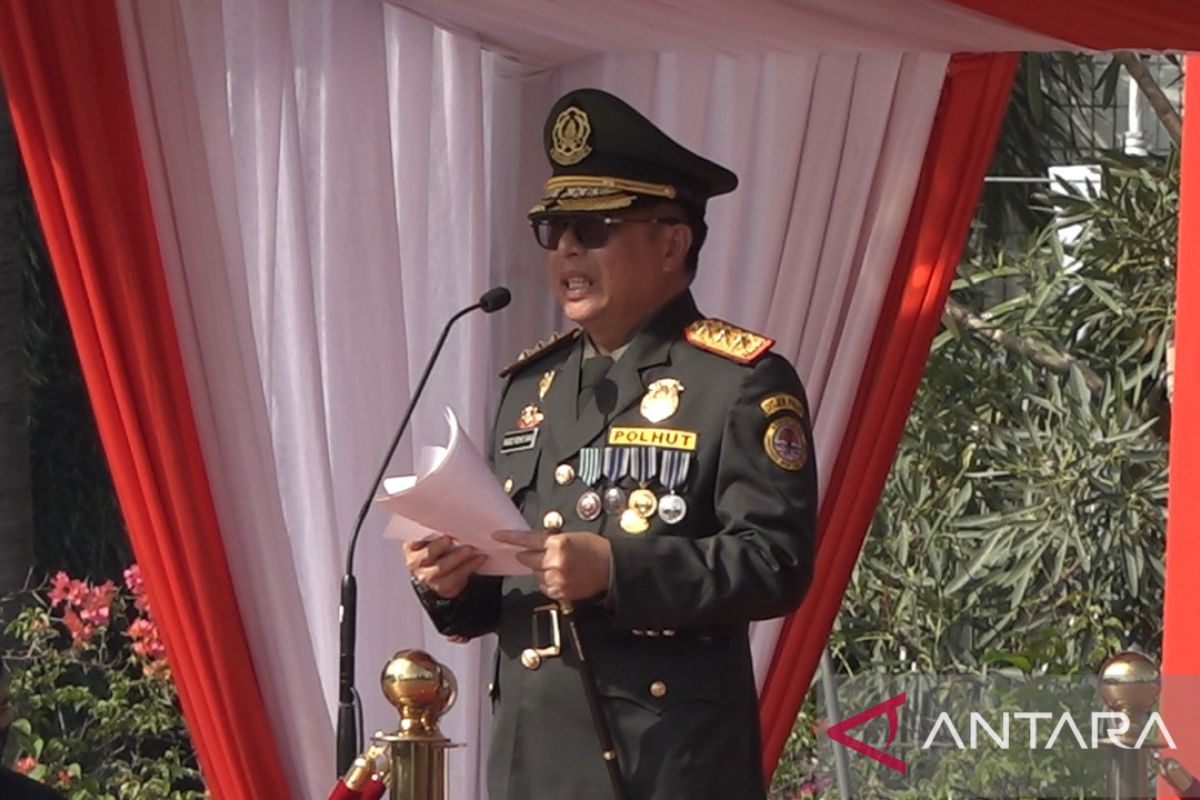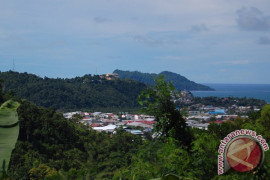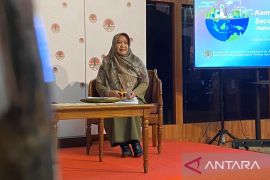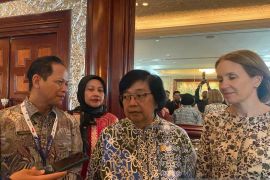Certainly, the forest rangers must be able to take on a firm role as the front guard to continue to contribute in developing the country, especially in preventing and minimizing damages to forests areas and forestry productsJakarta (ANTARA) - The Environment and Forestry Ministry strives to strengthen the role of forest rangers in supporting the government's attempts to achieve the target of the Forestry and Other Land Uses (FoLU) Net Sink by 2030.
FoLU Net Sink refers to a condition wherein the level of carbon absorption in the FoLU sector is balanced or higher than carbon emissions produced by the sector.
Director General of Law Enforcement at the ministry Rasio Ridho Sani emphasized at the 56th Indonesian Forest Rangers Anniversary here on Wednesday that rangers were important human resources in forestry management to reduce greenhouse gas emissions of the sector.
Furthermore, he highlighted the importance of cooperation among ministries and agencies to prevent violations of regulations on environmental and forestry protection.
Hence, the Directorate General of Law Enforcement of the Environment and Forestry Ministry collaborates with the Directorate General of Customs and Excise of the Finance Ministry to improve the prevention and prosecution of violations of regulations.
"Certainly, the forest rangers must be able to take on a firm role as the front guard to continue to contribute in developing the country, especially in preventing and minimizing damages to forests areas and forestry products," the director general remarked.
The attempts to achieve FoLU Net Sink 2030 include reducing the rate of deforestation and degradation on mineral land and peatlands, developing plantation forests, as well as applying sustainable forest management.
Furthermore, other efforts comprise conducting reforestation through rotation and non-rotation planting, peatland restoration, peatland water system improvement, as well as biodiversity conservation.
Meanwhile, the on-site level reduction of greenhouse gas emissions can be conducted by mitigating forest and land fires; preserving forest coverage to maintain absorption of emissions; as well as rehabilitating forests and creating new tropical forests to increase emission absorption.
Indonesia is targeting to achieve an emission level of -140 million tons of CO2 equivalent in the FoLU sector by 2030.
The government is implementing three strategies of sustainable forest management, environmental governance, and carbon governance to achieve the FoLU Net Sink 2030.
Related news: Shortage of rangers to guard West Papua's 8.39-million ha forests
Related news: Ministry, USAID to support FOLU Net Sink plan
Related news: Indonesia, US continue collaboration to support FoLU Net Sink 2030
Translator: Prisca Violleta, Uyu Liman
Editor: Sri Haryati
Copyright © ANTARA 2022












